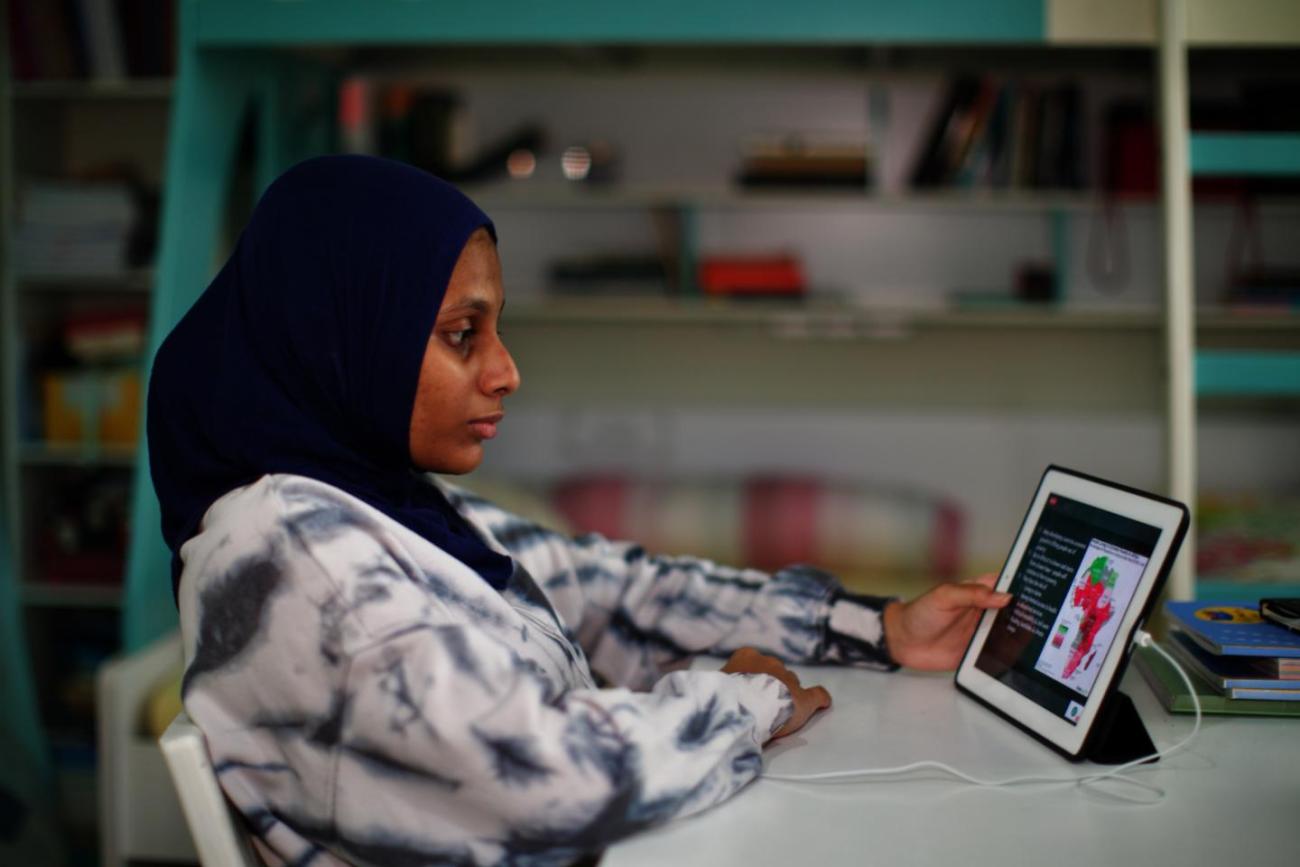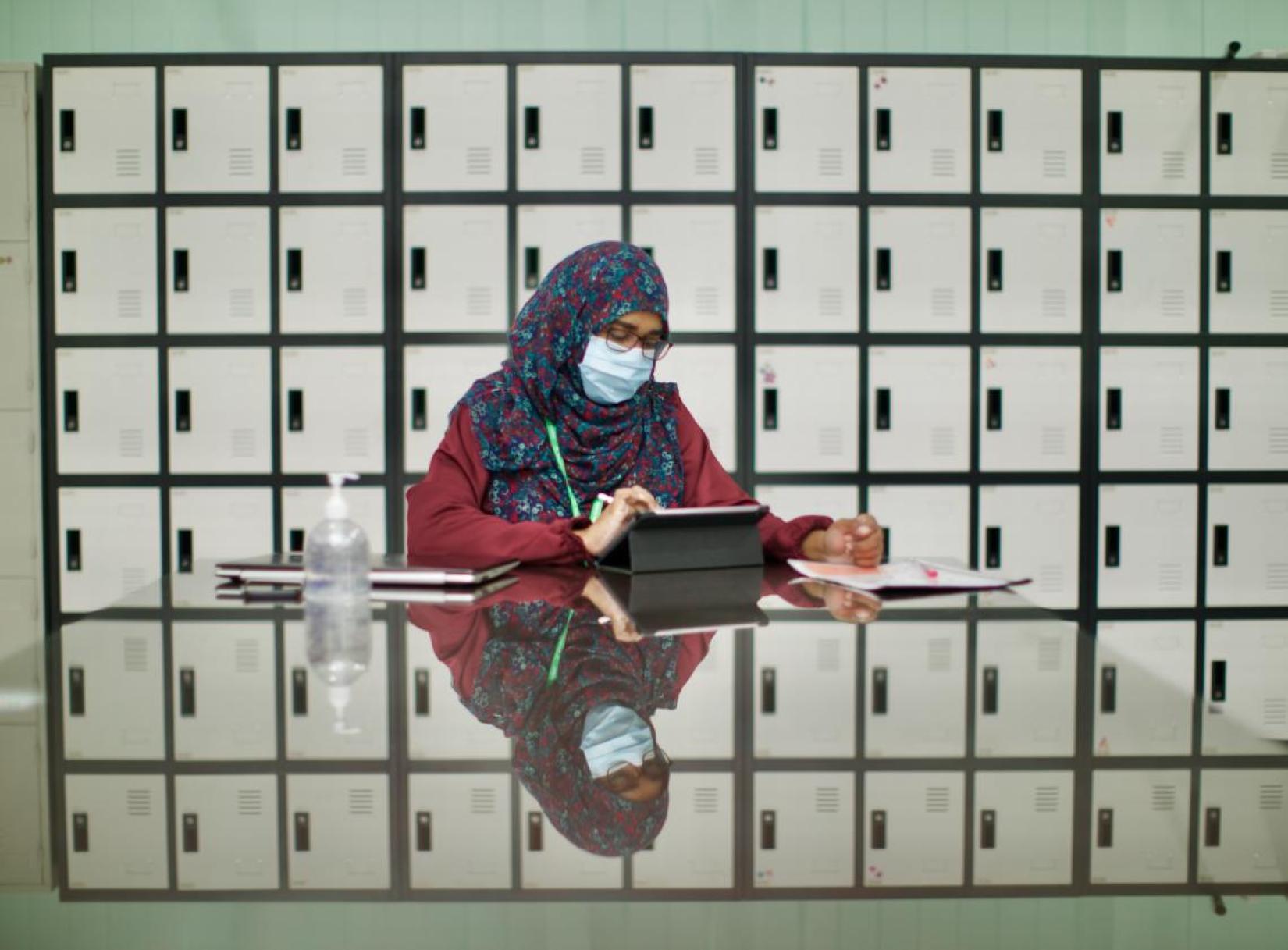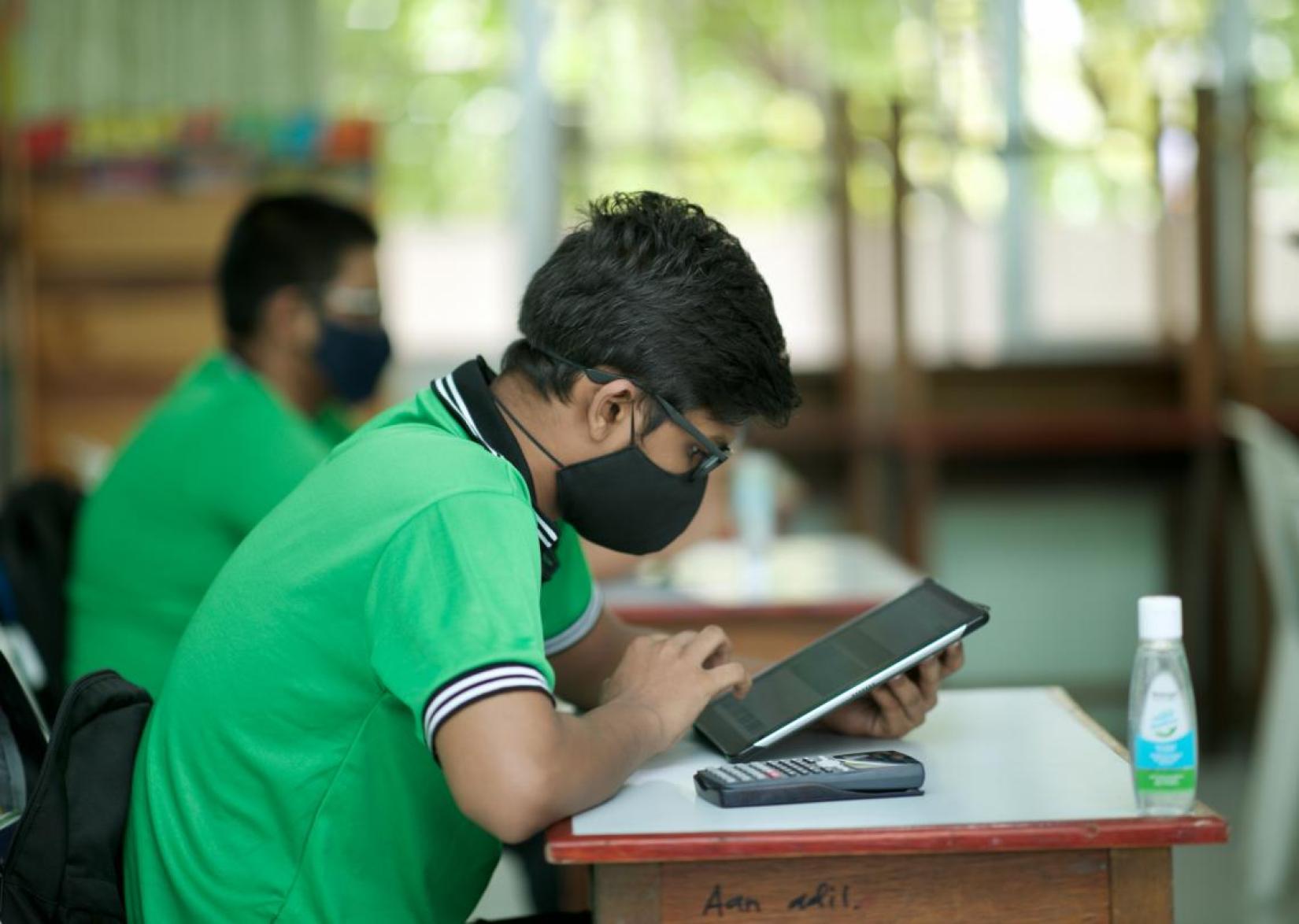Schools navigate online learning with UNICEF support

Continuing learning during COVID-19
One of the most profound ways COVID-19 has impacted the lives of children is through the prolonged disruption to their routines, particularly learning, with the shutdown of schools across the world.
Schools are not just a place for learning but also a place where children learn to socialize and share their innermost thoughts and feelings, especially with their beloved teachers.
In the Maldives, the first outbreak in March forced Malé into lockdown as COVID-19 cases increased in the capital island, abruptly shutting down basic services including schools.
Teachers had to take on a larger workload in order to ensure that students continued learning. With the closure of schools, most of the work had to be transferred to online platforms such as Microsoft Teams, Google Classroom and Zoom, to which teachers and students were very unfamiliar.
The biggest challenge for Nuha Ismail, who teaches business studies to more than a 100 students at Kalaafaanu School in Male’, was the blurring of work and personal lives as teachers started to work from home.

“Due to COVID-19, we were forced to work from home. This affected normal routines as there was no boundary for working hours. Apart from preparing materials for lessons, hours have to be spent on contacting parents to encourage students to submit their work,” Nuha said.
Nuha’s students, have now returned to their classes with special precautionary measures put in place by the Ministry of Education to stop the spread of COVID-19. Some of these measures include health screenings before access to school premises, limiting seats in classes so students can maintain physical distance, mandatory face masks at all times and regular hand-hygiene. Schools have also invested in building hand washing stations with support from UNICEF.

“Due to COVID-19, schools were closed after the first mid-term break in March 2020. We rapidly moved to online platforms in order to ensure learning did not stop and to keep students engaged, especially for Key-Stage four students. This has led to significantly increased teaching workload,” Nuha explained.
On top of this, converting and moving lessons into online spaces and orienting students to online tools, while trying to adapt to the same changes was a huge challenge for teachers and students alike.
In April, through a UNICEF facilitated online training Nuha became her school’s first Google Certified Educator, which has helped her navigate the transition to Google classroom.
“Google for Education [Google Classroom] is the platform used for online classes. So, becoming a Google Certified Educator made it easier for me to conduct online classes. The training supported by UNICEF helped me to become familiar with various tools, and explore different ways to make lessons interactive and improve student engagement,”
This has helped Nuha reach out to and guide her students using more interactive tools.
Online classes made it possible to continue teaching and learning during this pandemic.
Nuha
“Online classes made it possible to continue teaching and learning during this pandemic. Students were engaged in learning through online classes and helped in preparing Grade 10 students for their final exams,”
Nuha has also started training her colleagues in the use of online tools, helping 123 teachers to become Google Certified Educators.
Online learning is important not only in case of an emergency but also to ensure that students are more engaged in learning through interactive digital resources.
“I have been able to assist teachers at different levels in solving issues related to online teaching and learning,” Nuha remarks, noting that it has been a pleasure to be able to help her colleagues.
With UNICEF’s support 3,874 teachers have been trained in G suite online tools and when schools were closed from July to October 2020, they helped reach a total of 38,392 students— nearly half of the students in primary and secondary grades in government schools across the country.



